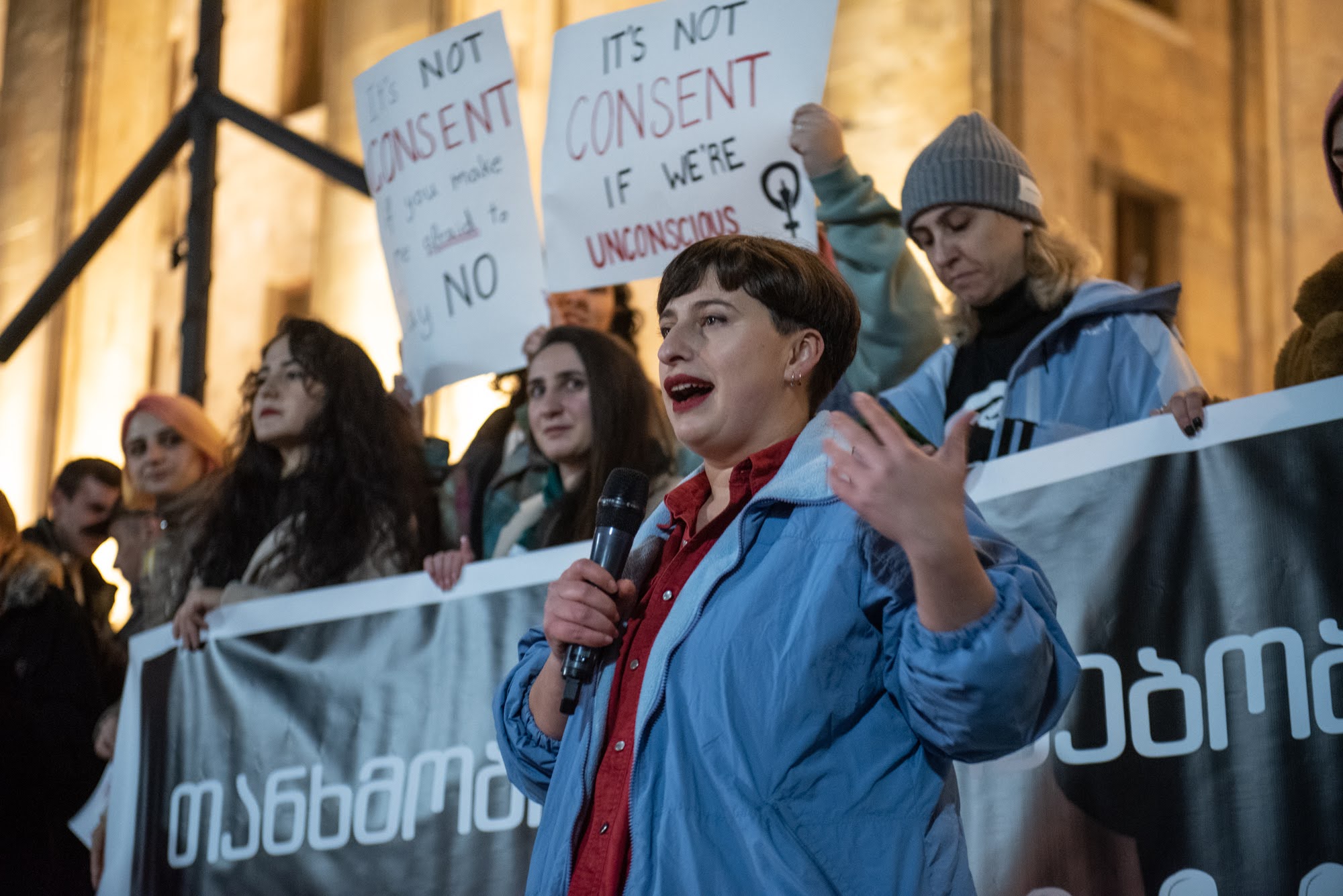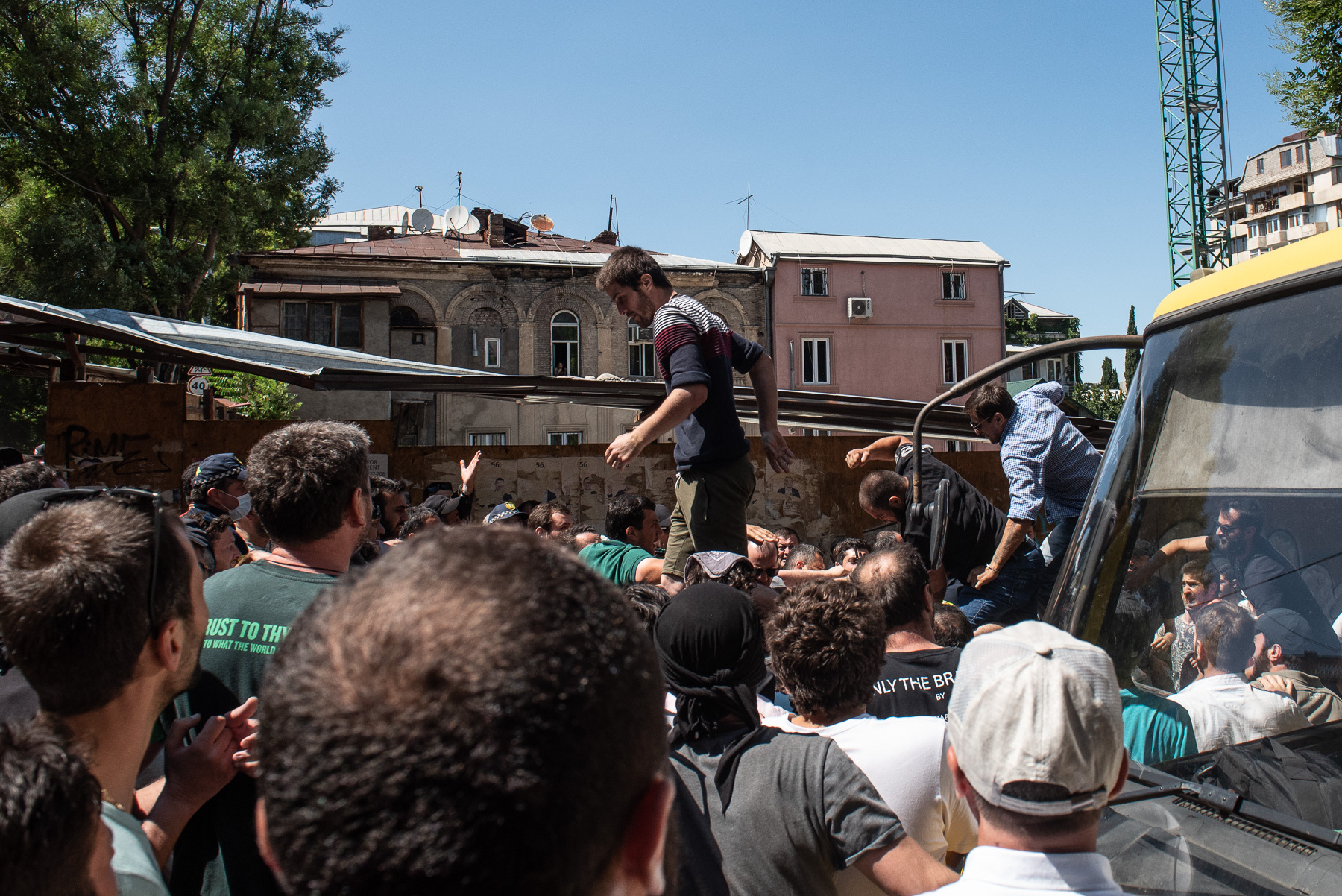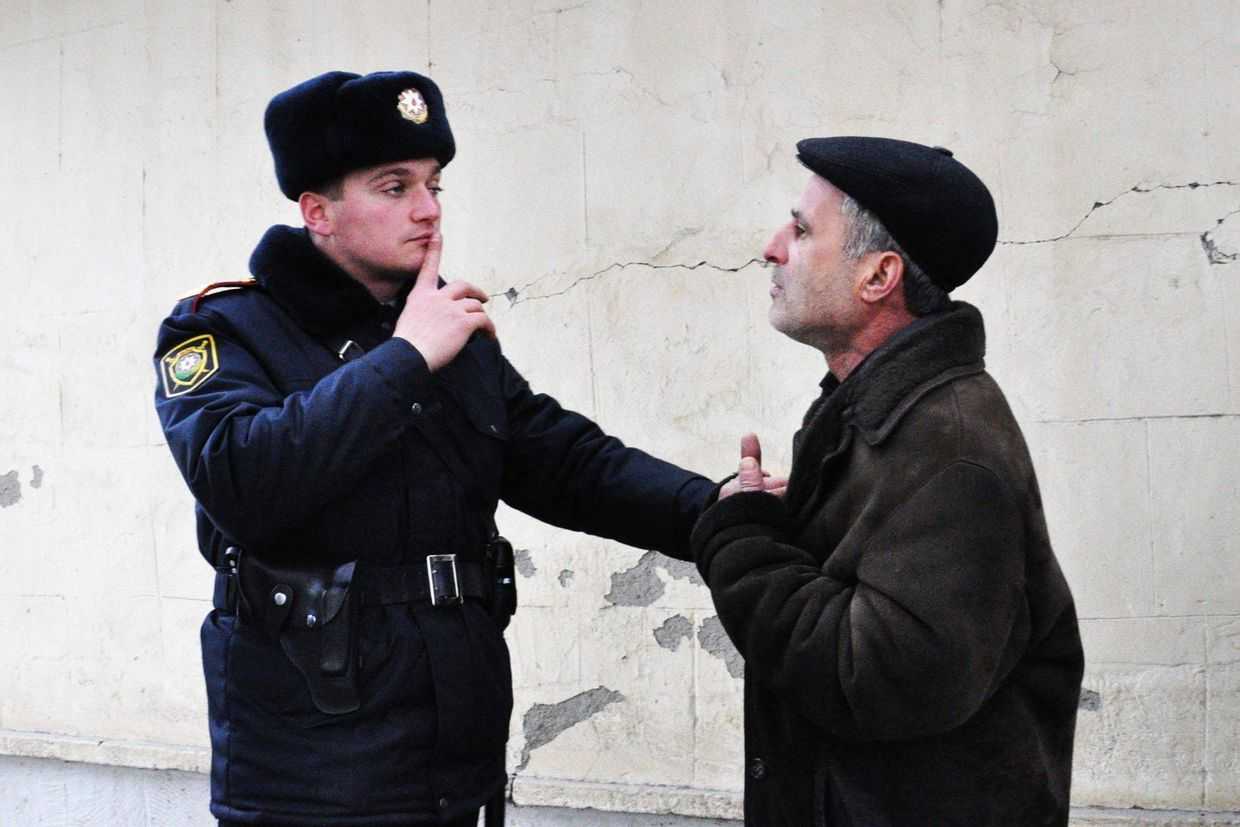
The ruling Georgian Dream party has rushed through controversial amendments outlawing the broadcast of ‘obscenity’ on TV and radio. Media rights groups have warned the law could be used by the government to further crack down on media freedom in the country.
The clause outlawing ‘obscenity’ was not included in the original draft of the amendments, appearing publicly only after the bill passed its first reading in parliament on Wednesday. The amendments were then pushed through in an expedited manner, passing both their second and third readings in parliament on Thursday.
The amendments would give the Georgian National Communications Commission (GNCC) the power to fine media outlets who incited violence or intolerance based on disability, gender identity, sexual orientation, sex, ethnicity, race, faith, or financial status.
It would also allow them to fine media outlets for broadcasting ‘obscenity’, defined as ‘an action which is in conflict with ethical norms established in society and which has no social and political, cultural, educational or scientific value’.
In recent years, the GNCC has been accused of targeting media groups for their criticism of the government, accusations the agency has firmly rejected.
The government has insisted the amendments were a requirement from the EU in order for the country’s EU membership bid to be reconsidered.
However, previous amendments passed in 2022 giving the Communications Commission the power to fine outlets for inciting violence were reversed in June after receiving widespread criticism. The Council of Europe stated the amendments ‘did not align’ with EU regulations.
‘A very big danger’
Media outlets, rights groups, and the opposition have roundly condemned the amendments.
Khatia Ghoghoberidze, who chairs the Council of the Charter of Journalistic Ethics, told OC Media that the Charter saw ‘a very big danger’ in the ammendments, especially ahead of the 2024 parliamentary elections.

She said that given the limited financial resources of many critical media outlets, fines would ‘obstruct and limit’ the work of the media in Georgia. ‘If the government has leverage, it will be tempted to control critical media’, she added.
‘Obviously, the Ethics Charter does not support hate speech, it’s just that the Charter believes that this is a matter of self-regulation, not regulation by the government, that’s the difference. [With these amandents] anything can be labelled as hate speech’, she said.
In recent years, leading members of the ruling party have frequently used ‘hate speech’ to describe offensive comments aired or voiced by the media critical of the government — against the spirit of 2022 recommendations by the Council of Europe.
Ghogoberidze said that the amendments passed were ‘much worse’ than the previous ones, because the definition of obscenity was ‘a very general concept and everything can be adapted to it’.
She raised the example of covering topics such as the prosecution of protesters for holding posters with Prime Minister Irakli Gharibashvili’s name misspelt so as to resemble the Georgian word for ‘dick’.
[Read on OC Media: Tbilisi court convicts protester ‘for holding blank sheet of paper’]
The Georgian Democracy Initiative (GDI) called the legislative changes ‘alarming’ against the background of the ‘already deplorable state of media freedom’.
‘[This] once again confirms the fears of civil society regarding the real goals of the government — to limit the spread of dissent in the country as much as possible’, the statement read.
GDI warned the regulation of hate speech would bring ‘dire consequences’.
Davit Kirkitadze, an MP from the opposition United National Movement (UNM), told journalists that Georgian Dream was trying to introduce ‘censorship’.
Salome Samadashvili from Lelo said Georgian Dream used their failed attempt to impeach President Salome Zurabishvili as a ‘show’ to distract people while they passed the legislation.
‘They also sneaked a new censorship law into the Parliament, they pledge they will stay in power forever like Putin’, she said.
During the impeachment proceedings, the ruling party also passed new anti-protest amendments.
‘A directive from the EU’
The ruling party has continued to maintain the amendments were required for the country’s EU bid.
Georgian Dream MP Davit Songhulashvili, who chairs the economy and economic policy committee, claimed on Wednesday that the amendments ‘fulfilled’ the seventh of the EU’s 12 recommendations required for Georgia’s candidacy to be reconsidered.
The seventh recommendation stated that Georgia should ‘undertake stronger efforts to guarantee a free, professional, pluralistic and independent media environment, notably by ensuring that criminal procedures brought against media owners fulfil the highest legal standards, and by launching impartial, effective and timely investigations in cases of threats against the safety of journalists.’
This was largely interpreted to be a rejection of the prosecution of Mtavari director Nika Gvaramia and calling for the prosection of the organisers of the mass attacks on journalists on 5 July 2021.
Gvaramia was subsequently pardoned by President Zurabishvili over the objections of the government, while the organisers of the 5 July attacks remain free.

The EU also said the 12 recommendations should be implemented with ‘the involvement of civil society in decision-making processes at all levels’. The latest amendments were rushed through parliament in two days.
Georgian Dream chair Irakli Kobakhidze suggested on Thursday that he had not even read the bill.
‘I don’t even know the details of this bill — we have no political interest in it; it is an EU directive that is being implemented’, he said.
‘This draft law was sent to the European Union, we offered options, they chose one of the three and we adopted it, that’s the end of the story’, he said.
Chair of parliament Shalva Papuashvili said on the same day that ‘everyone who opposes the amendments to the law on broadcasting supports hatred, terrorism and obscenity’.









